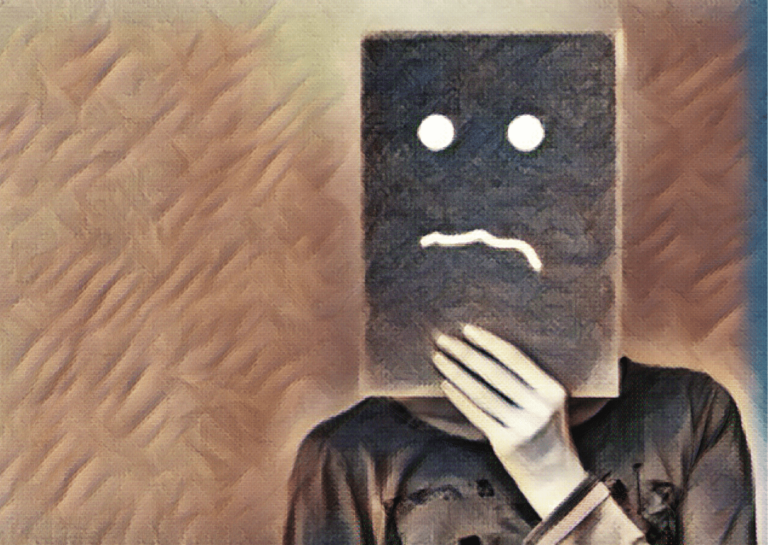Many men struggle with mental health after becoming fathers. But stigma and societal norms keep them from getting help. In this article, we will discuss how to recognize the signs of postpartum depression and how to get help.
A lot of the parent prep classes out there teach about the signs of maternal postpartum depression. It is common to focus on the physical and mental health of the baby, and of the mother, but fathers struggle also.
According to Dr. Jonathan Scarff, as many as one in six men can experience high levels of anxiety in the postpartum period. An analysis of studies that have documented depression in fathers between the first trimester and the first year, found that about 10 percent of new dads experience depression. In the 3- to the 6-month postpartum period, that rate climbs to 25 percent.
The Diagnostic and Statistical Manual of Mental Disorders defines depression with postpartum onset as a major depressive episode during pregnancy or within four weeks after birth. For men, this may develop more slowly over a full year. Signs of a major depressive episode- in both men and women- include feeling sad, crying, having recurrent thoughts of death, and losing interest in activities. But men may also show different signs including frustration, agitation, an increase in dopamine-boosting activities like drinking, drugs, gambling, and isolation.
An example of these signs showing could include; being frustrated, irritable, and detached, going to bed before 7 pm by claiming exhaustion, and wanting to be left alone. They may feel sad or fatigued, be overwhelmed, experience anxiety, or have changes in their usual eating and sleeping patterns ― the same symptoms mothers with postpartum depression experience.
You know when you hear people say “it’s fine, I’m fine” when you ask them what’s wrong? Well, this response could actually be a sign of postpartum depression in men. Men try to shake it off because, unlike women, men see weakness as a sign of vulnerability. Men are often socialized to value independence, dominance, stoicism, strength, self-reliance, and control over their emotions, and many see weakness as shameful.
And doing everything to avoid shame and vulnerability, makes it even more challenging to get help for their mental health. Once the signs are recognized, if you haven’t done so before, begin the conversation about postpartum depression in men. Like we mentioned earlier, it is the stigma and social norms that often keep men from getting help or realizing they are not alone in feeling this way. Postpartum depression in men is just as serious of a health issue as postpartum depression among women.
Overall, depression rates in men are about half those of women. Yet men exhibit significantly higher rates of substance use and account for three-quarters of suicides. And more recent evidence suggests that new fathers are especially at risk for suicide compared to new mothers. This difference suggests that many men are experiencing depression, but not admitting or addressing it.
According to a 2016 clinical psychology review, men are half as likely to seek help for mental health concerns, when compared with women. Dr. Fisher, from Northwestern University, explains that “men tend to get treatment when their partner is distressed by their behavior.” This is interesting because it shows that men don’t get help for their own well-being until it reaches the point where it affects their partner’s wellbeing- which occurs long after symptoms begin.
To assess and reduce the risk of suicide in men with mood disorders during the postpartum period, a longitudinal study of 650 men concluded that clinicians should address and treat changing moods as a serious mental health concern. If you are noticing signs or symptoms of postpartum depression in yourself or your partner, it is important to start the conversation of mental health and seek professional help whether that be medication, therapy, or other treatments.
People with depression may not recognize or acknowledge that they’re depressed or not be aware of the signs and symptoms. If you suspect that a friend or loved one has postpartum depression, help them seek medical attention immediately. Don’t wait and hope for improvement. If you or your partner are having suicidal thoughts, seek help from your primary care provider or other healthcare professionals.
Resources
- National Suicide Prevention Line – 800-273-8255
- Parental Stress Line – 800-632-8188
- Crisis Text Line – Text HOME to 741741
References
Paulson, James F, and Sharnail D Bazemore. “Prenatal and postpartum depression in fathers and its association with maternal depression: a meta-analysis.” JAMA vol. 303,19 (2010): 1961-9. doi:10.1001/jama.2010.605
“Postpartum Depression.” Mayo Clinic, Mayo Foundation for Medical Education and Research, 1 Sept. 2018, www.mayoclinic.org/diseases-conditions/postpartum-depression/symptoms-causes/syc-20376617.
Seidler, Zac E et al. “The role of masculinity in men’s help-seeking for depression: A systematic review.” Clinical psychology review vol. 49 (2016): 106-118. doi:10.1016/j.cpr.2016.09.002
Quevedo, Luciana et al. “Risk of suicide and mixed episode in men in the postpartum period.” Journal of affective disorders vol. 132,1-2 (2011): 243-6. doi:10.1016/j.jad.2011.01.004

